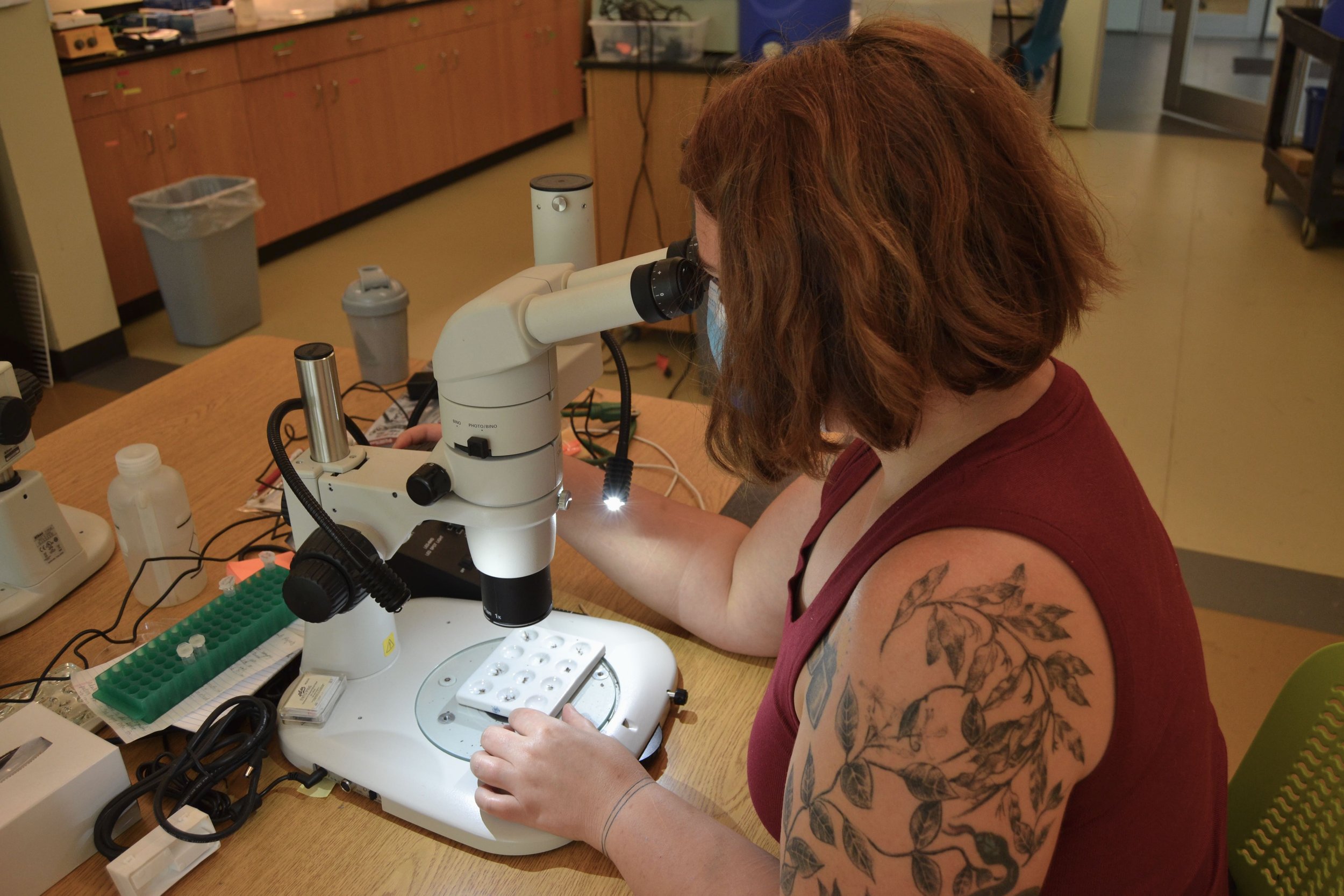
I study the ecology and evolution of mosquitoes.
We now live in an epoch where humans are the predominant factor affecting our environment and climate. My work focuses on how anthropogenic changes to the environment impact mosquitoes and their parasites.
I am a staff scientist at Tyson Research Center, the field station of Washington University in St. Louis. I work closely with Dr. Kim Medley and each summer we co-mentor The Mosquito Team. The team consists of technicians, undergraduate and high school students that participate in our hand-on, experiential education programs and collect cool data.
Mosquitoes are a great model system to ask, and answer, basic ecological and evolutionary questions. As mosquitoes are one of the most important vectors of disease globally, everything we learn about these fascinating insects also has applied human health implications.














Adaptation to climate
Our recently published work demonstrated adaptation to cold winters at the northern range edge for the tiger mosquito. We are now exploring both broad and local scale variation in tolerance to hot and dry conditions.
Urban ecology and evolution of the tiger mosquito (Aedes albopictus)
We have been studying mosquitoes across a land use gradient in Saint Louis, Missouri.
Mosquito resting behavior, mircoclimates, and sugar feeding.
Little is known about where exactly mosquitoes spend their time resting, how they utilize microclimates during the hottest parts of the day, or how different plant species serve as refuges and sugar meal sources. We are currently exploring methods to determine where mosquitoes rest and if they have plant preferences.
Anthropogenic disturbance, invasive species, and parasite dynamics
Our team has been investigating how a warming climate, invasive species, and light pollution enhance or disrupt parasites of mosquitoes.
Larval ecology
Mosquito larvae are aquatic and unable to migrate to new habitats until they emerge as terrestrial adults. What happens in the larval habitat matters and can carry over to affect traits of adult mosquitoes important for disease transmission.




